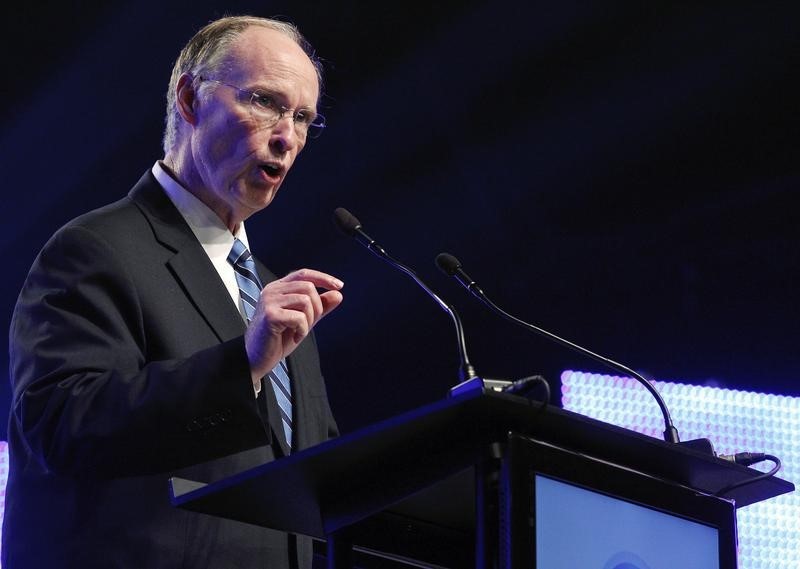By Wayne Hester
BIRMINGHAM, Ala. (Reuters) - Alabama's governor ordered Confederate flags removed from the grounds of the Southern state's Capitol, his office said on Wednesday, joining a growing movement of politicians to spurn an emblem widely associated with slavery and racism.
"This is the right thing to do," Governor Robert Bentley said in a statement that came a week after the massacre of nine black worshippers at a Bible study session in a historic African-American church in Charleston, South Carolina.
The four flags located around the Confederate Memorial on the State Capitol grounds in Montgomery were taken down on Wednesday morning.
The flags - a Confederate battle flag and three flags with different designs used by the Confederate States of America - were taken down after a verbal order from the governor "first thing this morning," Bentley's press secretary, Yasamie August, said in a telephone interview.
August said Bentley decided to have the flags taken down because he did not want them to be a distraction from other state issues.
Asked if the flags would be moved to a museum, she said did not know what the next step would be.
The Civil War-era flags of the South's pro-slavery Confederacy have become a lightning rod for outrage after the shootings last week at Emanuel African Methodist Episcopal church in Charleston, which authorities say was motivated by racial hatred.
Dylann Roof, a 21-year-old white South Carolina man charged with nine counts of murder in the killings, had posed with a Confederate battle flag in photos posted on a website that also displayed a racist manifesto.
"I am very proud of the governor," said Doug Jones, a former U.S. attorney who prosecuted the 1963 bombing of a black church in Birmingham, Alabama by Ku Klux Klan members killed four black girls.
"There's a pretty strong movement now. It's just tragic that it took the death of nine people to make people start realizing that flag is a symbol of hate," Jones said in a phone interview.

The Confederate flag controversy is the latest flashpoint in a year of intense debate over U.S. race relations, sparked by the killings of unarmed black men by police officers in a number of cities, including Ferguson, Missouri; New York City and Baltimore. The outcry has prompted protests under the banner "black lives matter."